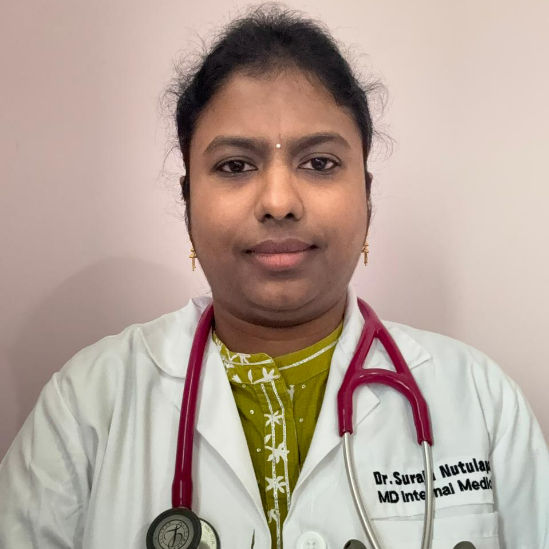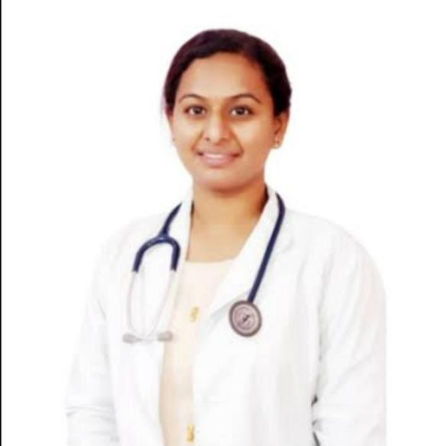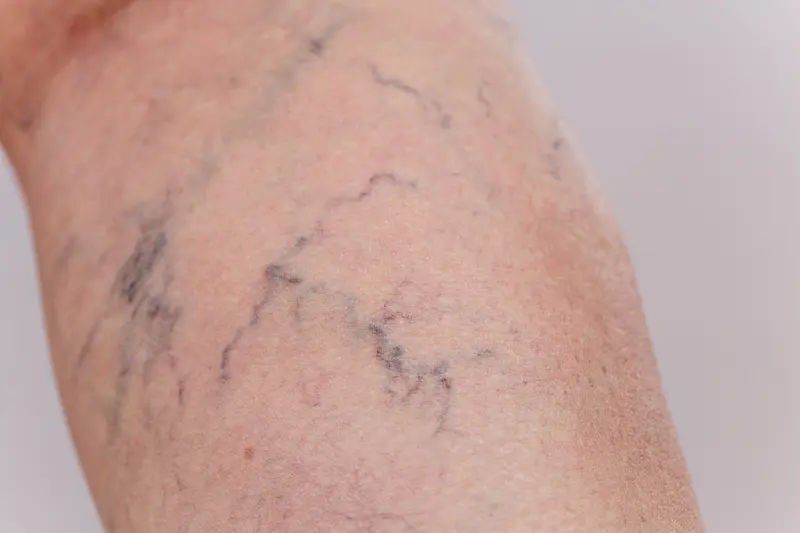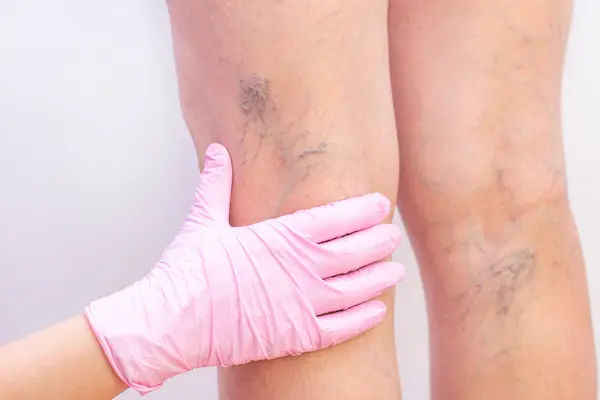Varicose Veins: Overview of Symptoms and Treatment
Learn about varicose veins, their symptoms, causes, and treatment options. Understand how this condition affects circulation and explore effective management strategies.


Varicose veins are a common condition that affects many people, especially as they age. These swollen, twisted veins, often seen in the legs, can cause discomfort and sometimes lead to more serious health issues if left untreated. The good news is that with the right knowledge and care, varicose veins can be managed effectively.
In this article, we’ll explore what varicose veins are, their symptoms, causes, and treatment options. We’ll also share simple lifestyle changes that can help improve vein health and prevent complications.
What Are Varicose Veins?
Varicose veins are enlarged, twisted veins that usually appear blue or purple under the skin. They most commonly occur in the legs and feet because standing and walking increase pressure in the veins of the lower body.
Veins have tiny valves that help blood flow toward the heart. When these valves weaken or get damaged, blood pools in the veins, causing them to swell and become varicose. While they are often harmless, they can sometimes lead to pain, swelling, or more serious circulatory problems.
Consult a Top Specialist
Symptoms of Varicose Veins
Many people with varicose veins experience mild symptoms, while others may have more discomfort. Common signs include:
- Visible, bulging veins – Blue or purple veins that twist and bulge under the skin.
- Aching or heaviness – A dull pain or tired feeling in the legs, especially after standing for long periods.
- Swelling – Mild swelling in the feet and ankles.
- Itching or burning – Irritation around the affected veins.
- Muscle cramps – Especially at night.
- Skin changes – In severe cases, the skin may darken or harden near the ankles.
If you notice any of these symptoms, it’s a good idea to consult a doctor, especially if you experience pain, ulcers, or bleeding from the veins.
What Causes Varicose Veins?
Several factors contribute to the development of varicose veins:
- Age – As we get older, veins lose elasticity, and valves weaken.
- Gender – Women are more likely to develop varicose veins due to hormonal changes during pregnancy, menopause, or birth control use.
- Pregnancy – Increased blood volume and pressure on veins can lead to varicose veins.
- Family history – If your parents had varicose veins, you may be at higher risk.
- Obesity – Extra weight puts more pressure on veins.
- Prolonged standing or sitting – Jobs that require long hours on your feet or sitting can reduce circulation.
How to Manage and Improve Varicose Veins
While some risk factors (like genetics) can’t be changed, simple lifestyle adjustments can help reduce symptoms and prevent worsening:
1. Stay Active
Regular exercise improves circulation and strengthens leg muscles. Walking, swimming, and cycling are great options.
2. Elevate Your Legs
Raising your legs above heart level for 15-20 minutes a day helps reduce swelling and improves blood flow.
3. Wear Compression Stockings
These specially designed stockings apply gentle pressure to support veins and prevent blood from pooling.
4. Maintain a Healthy Weight
Losing excess weight reduces pressure on veins and improves circulation.
5. Avoid Prolonged Standing or Sitting
Take breaks to move around if you sit or stand for long periods.
6. Eat a Vein-Friendly Diet
Foods rich in fiber (whole grains, fruits, vegetables) and low in salt can help prevent swelling and constipation, which can worsen vein pressure.
Medical Treatments for Varicose Veins
If lifestyle changes aren’t enough, several medical treatments can help:
- Sclerotherapy – A solution is injected into the vein to close it, redirecting blood to healthier veins.
- Laser Treatment – Uses light energy to fade or remove smaller varicose veins.
- Endovenous Ablation – A minimally invasive procedure using heat to seal off problematic veins.
- Vein Stripping – Surgical removal of large varicose veins (rarely needed today).
Your doctor will recommend the best option based on your condition.
When to See a Doctor
While varicose veins are often harmless, seek medical advice if you experience:
- Severe pain or swelling
- Skin ulcers near the ankle
- Bleeding from a vein
- Sudden warmth, redness, or tenderness (signs of a blood clot)
If you’re concerned about varicose veins, consider booking a consultation with a vein specialist through Apollo 24|7. Early diagnosis and treatment can prevent complications and improve your quality of life.
Final Thoughts
Varicose veins are a common but manageable condition. By staying active, maintaining a healthy weight, and wearing compression stockings, you can reduce discomfort and prevent further issues. If symptoms persist, medical treatments are available to help. Remember, your veins play a crucial role in circulation, so taking care of them is essential for overall health. If you have concerns, don’t hesitate to reach out to a healthcare provider for guidance.
Consult a Top Specialist
Consult a Top Specialist

Dr. Dhanraj K
General Physician/ Internal Medicine Specialist
25 Years • MBBS, MD Internal Medicine - Osmania Medical College, Hyderabad
Hyderabad
Apollo Hospitals Jubilee Hills, Hyderabad
(400+ Patients)
Dr P Sai Avinash
General Physician/ Internal Medicine Specialist
7 Years • MBBS
Bengaluru
Apollo Medical Center, Marathahalli, Bengaluru

Dr. Sudhashree R
General Physician/ Internal Medicine Specialist
13 Years • MBBS, MRCEM
Bengaluru
Apollo Clinic, JP nagar, Bengaluru

Dr. Suraja Nutulapati
General Physician/ Internal Medicine Specialist
10 Years • MBBS, MD (Internal Medicine)
Hyderabad
Apollo 24|7 Clinic, Hyderabad
(975+ Patients)

Dr. Chaithra H
General Physician/ Internal Medicine Specialist
6 Years • MBBS, MD General Medicine, DNB General Medicine
Bangalore
Apollo 24|7 Clinic - Karnataka, Bangalore
Consult a Top Specialist

Dr. Dhanraj K
General Physician/ Internal Medicine Specialist
25 Years • MBBS, MD Internal Medicine - Osmania Medical College, Hyderabad
Hyderabad
Apollo Hospitals Jubilee Hills, Hyderabad
(400+ Patients)
Dr P Sai Avinash
General Physician/ Internal Medicine Specialist
7 Years • MBBS
Bengaluru
Apollo Medical Center, Marathahalli, Bengaluru

Dr. Sudhashree R
General Physician/ Internal Medicine Specialist
13 Years • MBBS, MRCEM
Bengaluru
Apollo Clinic, JP nagar, Bengaluru

Dr. Suraja Nutulapati
General Physician/ Internal Medicine Specialist
10 Years • MBBS, MD (Internal Medicine)
Hyderabad
Apollo 24|7 Clinic, Hyderabad
(975+ Patients)

Dr. Chaithra H
General Physician/ Internal Medicine Specialist
6 Years • MBBS, MD General Medicine, DNB General Medicine
Bangalore
Apollo 24|7 Clinic - Karnataka, Bangalore



